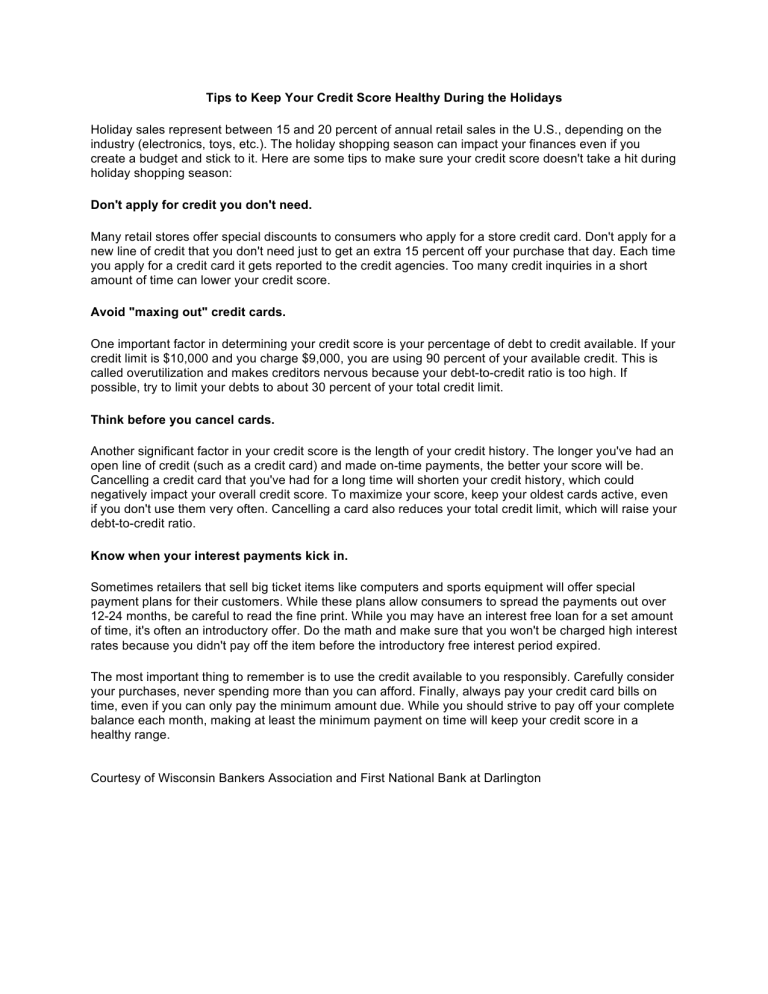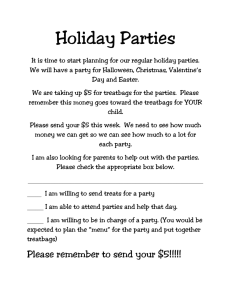Tips to Keep Your Credit Score Healthy During the Holidays Holiday

Tips to Keep Your Credit Score Healthy During the Holidays
Holiday sales represent between 15 and 20 percent of annual retail sales in the U.S., depending on the industry (electronics, toys, etc.). The holiday shopping season can impact your finances even if you create a budget and stick to it. Here are some tips to make sure your credit score doesn't take a hit during holiday shopping season:
Don't apply for credit you don't need.
Many retail stores offer special discounts to consumers who apply for a store credit card. Don't apply for a new line of credit that you don't need just to get an extra 15 percent off your purchase that day. Each time you apply for a credit card it gets reported to the credit agencies. Too many credit inquiries in a short amount of time can lower your credit score.
Avoid "maxing out" credit cards.
One important factor in determining your credit score is your percentage of debt to credit available. If your credit limit is $10,000 and you charge $9,000, you are using 90 percent of your available credit. This is called overutilization and makes creditors nervous because your debt-to-credit ratio is too high. If possible, try to limit your debts to about 30 percent of your total credit limit.
Think before you cancel cards.
Another significant factor in your credit score is the length of your credit history. The longer you've had an open line of credit (such as a credit card) and made on-time payments, the better your score will be.
Cancelling a credit card that you've had for a long time will shorten your credit history, which could negatively impact your overall credit score. To maximize your score, keep your oldest cards active, even if you don't use them very often. Cancelling a card also reduces your total credit limit, which will raise your debt-to-credit ratio.
Know when your interest payments kick in.
Sometimes retailers that sell big ticket items like computers and sports equipment will offer special payment plans for their customers. While these plans allow consumers to spread the payments out over
12-24 months, be careful to read the fine print. While you may have an interest free loan for a set amount of time, it's often an introductory offer. Do the math and make sure that you won't be charged high interest rates because you didn't pay off the item before the introductory free interest period expired.
The most important thing to remember is to use the credit available to you responsibly. Carefully consider your purchases, never spending more than you can afford. Finally, always pay your credit card bills on time, even if you can only pay the minimum amount due. While you should strive to pay off your complete balance each month, making at least the minimum payment on time will keep your credit score in a healthy range.
Courtesy of Wisconsin Bankers Association and First National Bank at Darlington



